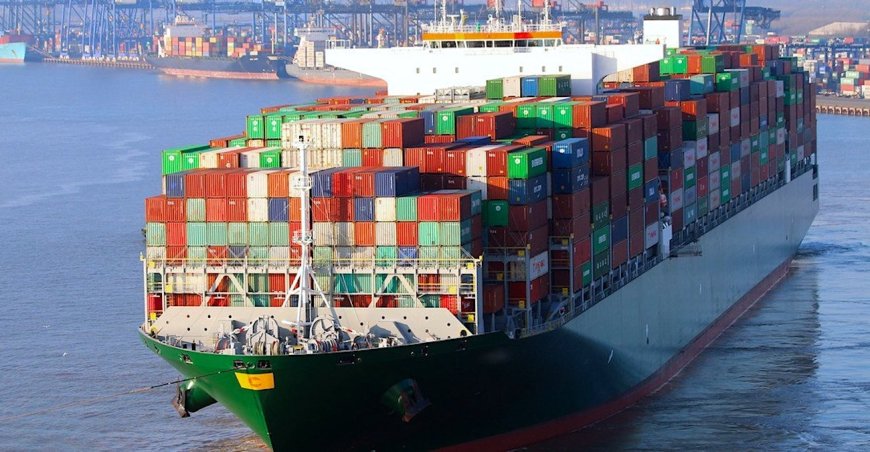‘Landmark’ Global Shipping Agreement Reached After Nearly 10 Years of Talks
After nearly a decade of negotiations, nations have come to a “landmark” global shipping agreement to reduce greenhouse gas emissions. The new International Maritime Organization (IMO) Framework introduced a carbon pricing mechanism that will require ships with high emissions to pay for the excess pollution they release, reported UN News. It also sets mandatory fuel […] The post ‘Landmark’ Global Shipping Agreement Reached After Nearly 10 Years of Talks appeared first on EcoWatch.

After nearly a decade of negotiations, nations have come to a “landmark” global shipping agreement to reduce greenhouse gas emissions.
The new International Maritime Organization (IMO) Framework introduced a carbon pricing mechanism that will require ships with high emissions to pay for the excess pollution they release, reported UN News. It also sets mandatory fuel standards for the shipping industry.
“Ships must reduce, over time, their annual greenhouse gas fuel intensity (GFI) – that is, how much GHG is emitted for each unit of energy used,” a press release from IMO said. “Ships emitting above GFI thresholds will have to acquire remedial units to balance its deficit emissions, while those using zero or near-zero GHG technologies will be eligible for financial rewards.”
The framework was agreed upon during the meeting of IMO and the Marine Environment Protection Committee in London. It aims for net-zero shipping emissions by 2050.
The regulations will come into force starting in 2027 and will apply to ocean-going vessels with more than 5,000 gross tonnage. This will cover 85 percent of the marine shipping fleet’s carbon dioxide emissions.
The negotiations were “particularly challenging,” with the United States and roughly a dozen countries opposed to the proposed framework. After being put to a vote, it ultimately passed and will be formally adopted in October.
“The approval of draft amendments to MARPOL Annex VI mandating the IMO net-zero framework represents another significant step in our collective efforts to combat climate change, to modernize shipping and demonstrates that IMO delivers on its commitments,” said IMO Secretary-General Arsenio Dominguez in the press release. “Now, it is important to continue working together, engaging in dialogue and listening to one another, if we are to create the conditions for successful adoption.”
MARPOL Annex VI is a reference to provisions in the International Convention for the Prevention of Pollution From Ships, which specifically addresses air pollution, UN News reported.
The framework introduced the IMO Net-Zero Fund, which will collect revenue from the new carbon pricing mechanism.
Revenues from the fund will be used to support research, innovation, transition and infrastructure initiatives in developing countries. They will also be put toward mitigating negative impacts on least developed countries, small island developing states and other vulnerable nations, which bear most of the economic and climate change pressures from the shipping sector.
Some island states said the agreed upon framework was a weaker version of what they had hoped for, reported BBC News.
Environmental groups also expressed disappointment with the final version of the agreement.
“This week, IMO member states squandered a golden opportunity for the global shipping sector to show the world how it can turn the tide on catastrophic climate heating, putting their own goals out of reach,” said Delaine McCullough, Clean Shipping Coalition president, as BBC News reported.
The framework could achieve an estimated eight percent emissions reduction for the shipping sector by 2030, maritime consultancy UMAS said. However, that would be short of a target previously set by IMO to reduce emissions by one-fifth in that time.
“There’s still a huge cost gap between the fossil fuels and the zero emission fuels and we need to close this gap. So you need carrots and sticks and in shipping the stick is not that big yet to use sustainable fuels,” said Refke Gunnewijk, the Port of Rotterdam’s program manager for sustainable transport, as reported by BBC News.
The post ‘Landmark’ Global Shipping Agreement Reached After Nearly 10 Years of Talks appeared first on EcoWatch.


















































